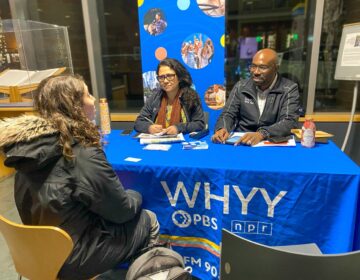N.J. does better than most in securing warrants for monitoring suspects’ cell phones
The Supreme Court has ruled that police can’t use GPS trackers on cars to keep tabs on suspects without a warrant. But new information from the American Civil Liberties Union shows police departments across the country aren’t afraid to track people using another device most people carry with them.
Just about every man, woman, and teenager has a cell phone, and they take them everywhere: to church, to the doctor, to the bar.
Catherine Crump, a staff attorney with the ACLU, said those locations can provide a lot of information.
“It contains a very detailed and intimate picture of who people are,” she said.
Crump said the ACLU believes the Fourth Amendment of the Constitution, which prohibits unreasonable searches and seizures, requires the government to get a warrant based on probable cause in order to track cell phones.
“Unfortunately, what we learned is disturbing,” Crump said. “It confirmed our suspicions that many law enforcement agencies don’t actually get a warrant to engage in this type of tracking and we think that’s a real problem.
“The technology is very new and the law has not kept pace,” she said.
Cherry Hill Police Department spokesman Lt. Bill Kushina said the department in Camden County gets a warrant first.
“There’s a whole procedure to follow,” Kushina said. “We have to have probable cause that we have enough information that there’s going to be stuff there that meets the merits that we need to, to further our investigation.”
Many police departments in New Jersey are doing a good job, Crump said.
“If law enforcement agencies in New Jersey can get a warrant in order to track cell phones, there’s no reason other law enforcement agencies can’t do the same,” she said. “In Delaware, the situation appears to be less favorable and it seems to be common for law enforcement agencies to engage in location-tracking without getting a full warrant showing probable cause.”
Crump said the ACLU did not include Pennsylvania in the survey because the group couldn’t cover procedures in every state.
WHYY is your source for fact-based, in-depth journalism and information. As a nonprofit organization, we rely on financial support from readers like you. Please give today.




